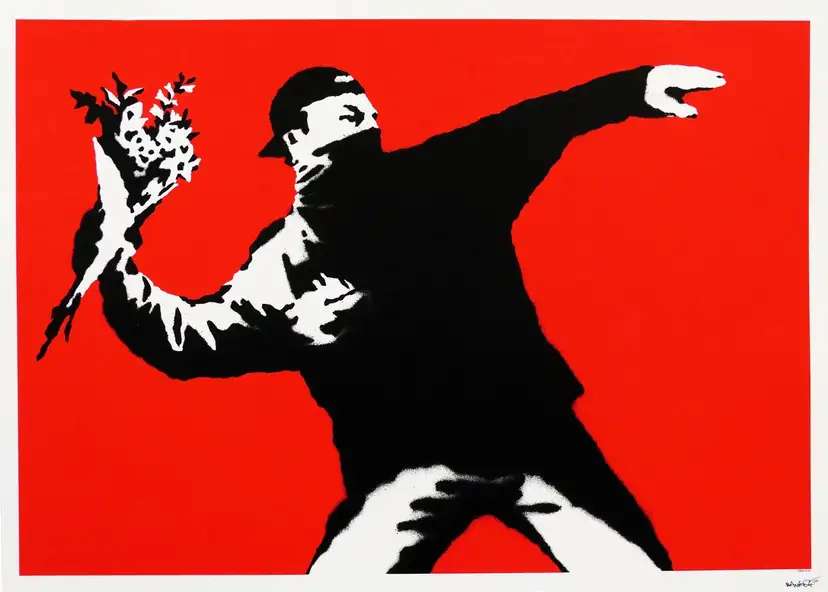Graffiti Art: Why Graffiti Is Art And Not Vandalism
Although graffiti is generally considered to be a contemporary artform, it actually originated thousands of years ago. The earliest examples are things like cave paintings and inscriptions on ancient buildings in Egypt, Greece and the Roman Empire, with the word ‘graffiti’ itself stemming from the Italian word graffiato, meaning ‘scratched’. Yet as the art form has evolved, so have the connotations surrounding it, and at present, turning walls into canvases remains nothing more than vandalism according to US law.

The debate over whether graffiti constitutes art or vandalism is incredibly complex, and depends on many factors, such as the location of a particular piece, and the quality and message of the design. There is no clear answer, and it’s easy to see both sides of the debate — after all, not everyone would be happy to have their property painted without their consent. On the flip side, it could also be argued that graffiti is an artist’s right to freedom of expression, and a way to ensure their work can be appreciated by those beyond the artistic elite.
However, we champion plenty of graffiti artists here at ArtLife, and even though there will always be exceptions, we stand firm that graffiti is deserving of its status as art for the following reasons:
Graffiti Takes Technical Skill
A great deal of talent is required to create brilliant artwork, and graffiti is no exception. In fact, there are plenty of street artists whose work clearly displays an immense level of technical ability. Take Retna, for example, who has gone beyond painting walls to cover entire buildings with his distinct calligraphic style, such as the 21-story Cuauhtemoc building in Mexico City. This unbelievably complex achievement required a great deal of strategic planning and real imagination to pull off, as well as a clear understanding of color and composition. This may not be true of all graffiti creations — many critics would argue that you don’t need talent to paint a scruffy tag. However, art is subjective, and there will always be ‘good’ and ‘bad’ artists within every movement. Those like Retna prove that, as in any art form, graffiti can be exceptional when created by someone with impressive skill.
It Exemplifies Freedom Of Expression
Art ceases to be art without freedom of expression, and perhaps graffiti exercises this right more than any other medium. Taking creativity to the streets means that the artists don’t need to worry about gallery curators, critics or potential buyers, and can therefore be completely unrestrained, and even anonymous if they so choose. Status doesn’t matter, and the lack of limitations allow graffiti artists to break conventions and push boundaries to create even more exciting — and arguably more authentic — works of art.
Political And Social Themes Are Powerfully Represented
Many of the most renowned artworks make a powerful comment on the social and political issues of their time, and graffiti can make a huge impact in this respect. Just look at Banksy, who has become world-famous for his humorous and subversive commentaries like Love is in the Air, first painted on Jerusalem’s West Bank barrier in 2003 as a statement in favor of Palestinian rights. Similarly, Keith Haring was able to bring mass attention to the crack epidemic through his Crack is Wack mural, as well as homosexuality and the AIDS crisis. Plenty of aficionados would argue that it’s art’s duty to shed light on such topics, and given that these themes relate to ordinary people, perhaps it’s unsurprising that the most iconic examples were created on the streets the target audience live on.
Impressive Works Bring Drab Spaces To Life
As well as having meaning, art is also valued for its beauty, and there’s no denying how beautiful some graffiti can look, which is why street art tours are now so popular all over the world. Even though graffiti is generally free to access, more and more people are willing to pay to see some of the most magnificent works in the city of choice. Bold colours, shapes and patterns are key features of this art form, and when artists let their imaginations run wild, their creations instantly transform drab spaces into places people are excited to be. Seeing as art is used to decorate the walls of our homes, couldn’t it be argued that graffiti does the same to the walls outside?
Huge Sales Demonstrate Its Artistic Value
Anyone arguing that graffiti isn’t art may struggle to explain why people have paid so much for it in recent years. For example, Untitled by Jean-Michel Basquiat sold for a huge $110.5 million in 2017, the most expensive American painting ever to sell at auction at the time, while Banksy’s Girl with Balloon sold for $1.37 million. Other expensive pieces include Retna’s Untitled ($38,000) and Charlie Chaplin by Mr. Brainwash ($100,000). Not everyone would agree that an artwork’s value is determined by its price tag, however the fact that graffiti can sell for such high sums proves the respect and prestige it has generated within the art community, and it would therefore be entirely reductive to claim all graffiti is mere vandalism.